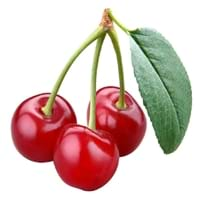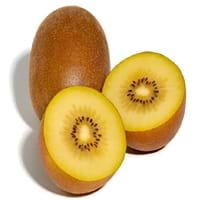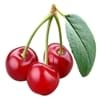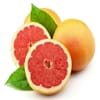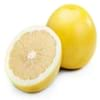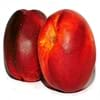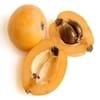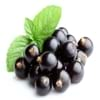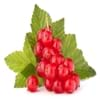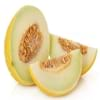Health Benefits
Arthritis prevention, Cancer prevention, Gout treatment, Regulation of heart rate, Treatment of osteoarthritis
Asthma treatment, Heart care, Improves stomach health, Regulation of heart rate, Treatment of skin Diseases
General Benefits
Anti oxidant properties, Anti-inflammatory properties, Controls blood pressure, Cures headache, Digestive aid
Boosts immune system, Controls blood pressure, Eye care, Helps in weight loss
Skin Benefits
Anti-aging benefits, Brightens and lightens complexion, Skin rejuvenation, Treatment of dark spots
Brightens and lightens complexion, Heals sunburn, Reduces wrinkles, Skin rejuvenation, Treatment of acne, Treatment of dark spots, Treatment of skin diseases
Hair Benefits
Acts as moisturizer, Protects hair, Regulates hair growth, Rejuvenates scalp
Prevents hair loss, Promotes longer and healthier hair, Treatment of dandruff
Allergy Symptoms
Anaphylaxis, Breathing difficulty, Fainting, Itching, Nasal congestion, Nausea, Swelling of mouth, tongue or lips, Tingling sensation in mouth, Vomiting, Wheezing
Abdominal pains, Anaphylaxis, Breathing difficulty, Itching in tongue and other parts of mouth, Itching sensation in throat, Swelling of mouth, tongue or lips, Vomiting
Side Effects
Abdominal cramps, Allergic reaction, Bloating, Intestinal gas
Allergic reaction, Diarrhoea, Skin rash, Possibly unsafe during pregnancy
Best Time to Eat
Best if taken as a breakfast (or empty stomach), As a snack in the late afternoon, Don't eat after meal, Morning time (before lunch)
Any time except an hour after meal
Vitamin B5 (Pantothenic Acid)
Vitamin C (Ascorbic Acid)
Vitamin K (Phyllochinone)
Calories in Fresh Fruit with Peel
Calories in Fresh Fruit without Peel
Not Available
Not Available
Calories in Frozen Form
Not Available
Season
Summer
Spring, Summer, Winter
Varieties
Evan, Mesabi, Meteor, Northstar, Montmorency and Mongolian
Qing Yuan #27, Qing Yuan #29, Qing Yuan #6 and Huang Yan
Texture
Crunchy
Succulent
Origin
Europe, Western Asia
China
Soil Type
Sandy
Well-drained
Climatic Conditions
Cold
Cold, Sunny
Facts about
- Using 1/4 tablespoon of almond extract with cherries, brings out the real flavor of cherries.
- In earlier times, serving cherry pie with ice cream was prohibited.
- 23 April is National cherry cheese cake day.
- The name Kiwi is due to its resemblance with 'Kiwi' bird.
- This variety of Kiwi was developed by New Zealand, it is not fuzzy on the outside and it has a taste reminiscent of the mango fruit.
Top Producer
Turkey
Italy
Other Countries
Albania, Armenia, Austria, Azerbaijan, Belarus, Croatia, Denmark, Germany, Hungary, Iran, Italy, Macedonia, Moldova, Poland, Russia, Serbia, Ukraine, United States of America, Uzbekistan
Chile, France, Greece, Iran, Japan, New Zealand, Portugal, Turkey, United States of America
Top Importer
Germany
United States of America
Top Exporter
Poland
New Zealand
Botanical Name
Prunus cerasus
Actinidia chinensis
Synonym
Not Available
Not Available
Subkingdom
Tracheobionta
Tracheobionta
Division
Magnoliophyta
Magnoliophyta
Class
Magnoliopsida
Magnoliopsida
Subclass
Rosidae
Dillenhidae
Family
Rosaceae
Actinidiaceae
Species
P. cerasus
A. chinensis
Difference Between Sour Cherry and Gold Kiwi
We might think that Sour Cherry and Gold Kiwi are similar with respect to nutritional value and health benefits. But the nutrient content of both fruits is different. Sour Cherry and Gold Kiwi Facts such as their taste, shape, color, and size are also distinct. The difference between Sour Cherry and Gold Kiwi is explained here.
The amount of calories in 100 gm of fresh Sour Cherry and Gold Kiwi with peel is 50.00 kcal and 60.00 kcal and the amount of calories without peel is Not Available and Not Available respectively. Thus, Sour Cherry and Gold Kiwi belong to Low Calorie Fruits and Low Calorie Fruits category.These fruits might or might not differ with respect to their scientific classification. The order of Sour Cherry and Gold Kiwi is Rosales and Ericales respectively. Sour Cherry belongs to Rosaceae family and Gold Kiwi belongs to Actinidiaceae family. Sour Cherry belongs to Prunus genus of P. cerasus species and Gold Kiwi belongs to Actinidia genus of A. chinensis species. Beings plants, both fruits belong to Plantae Kingdom.
